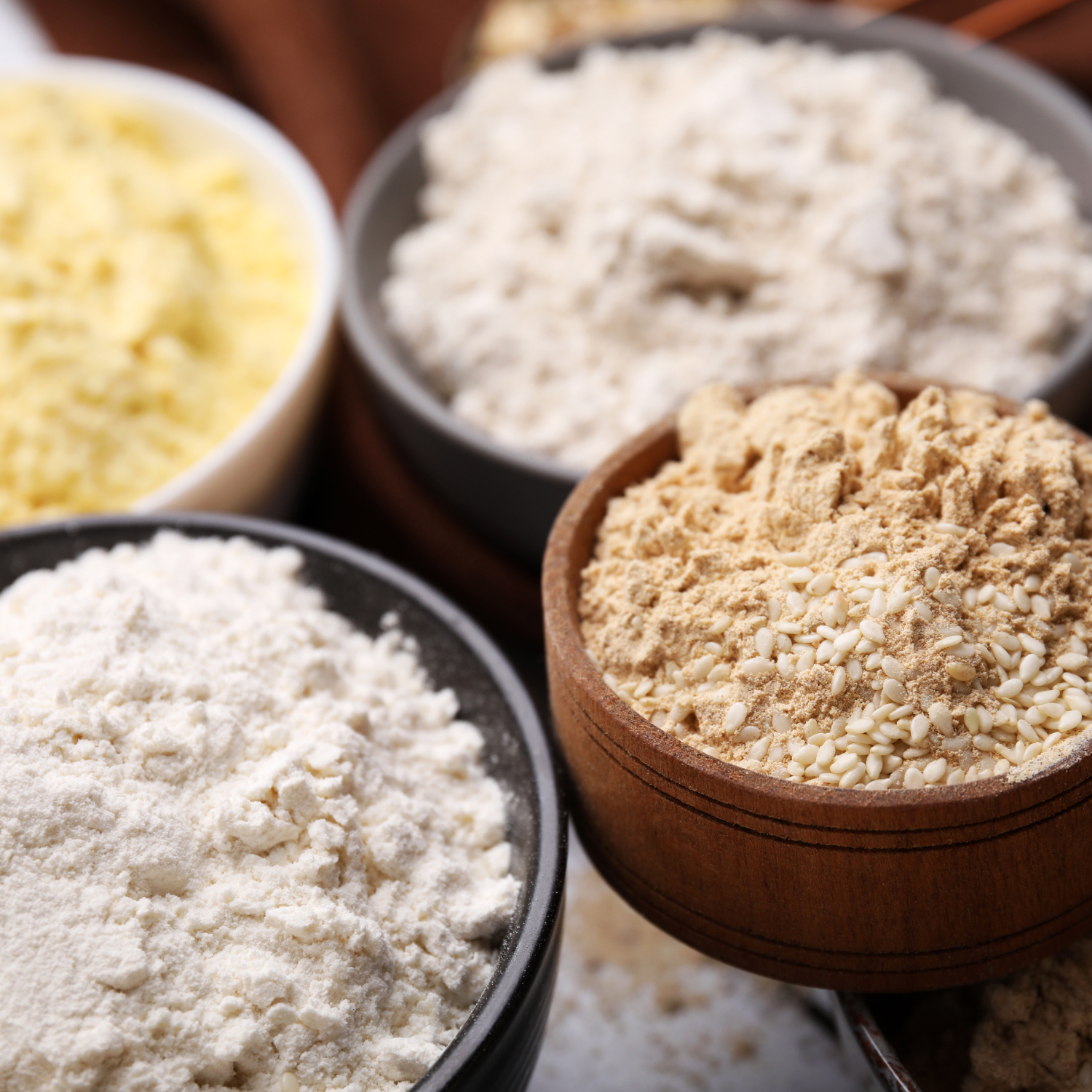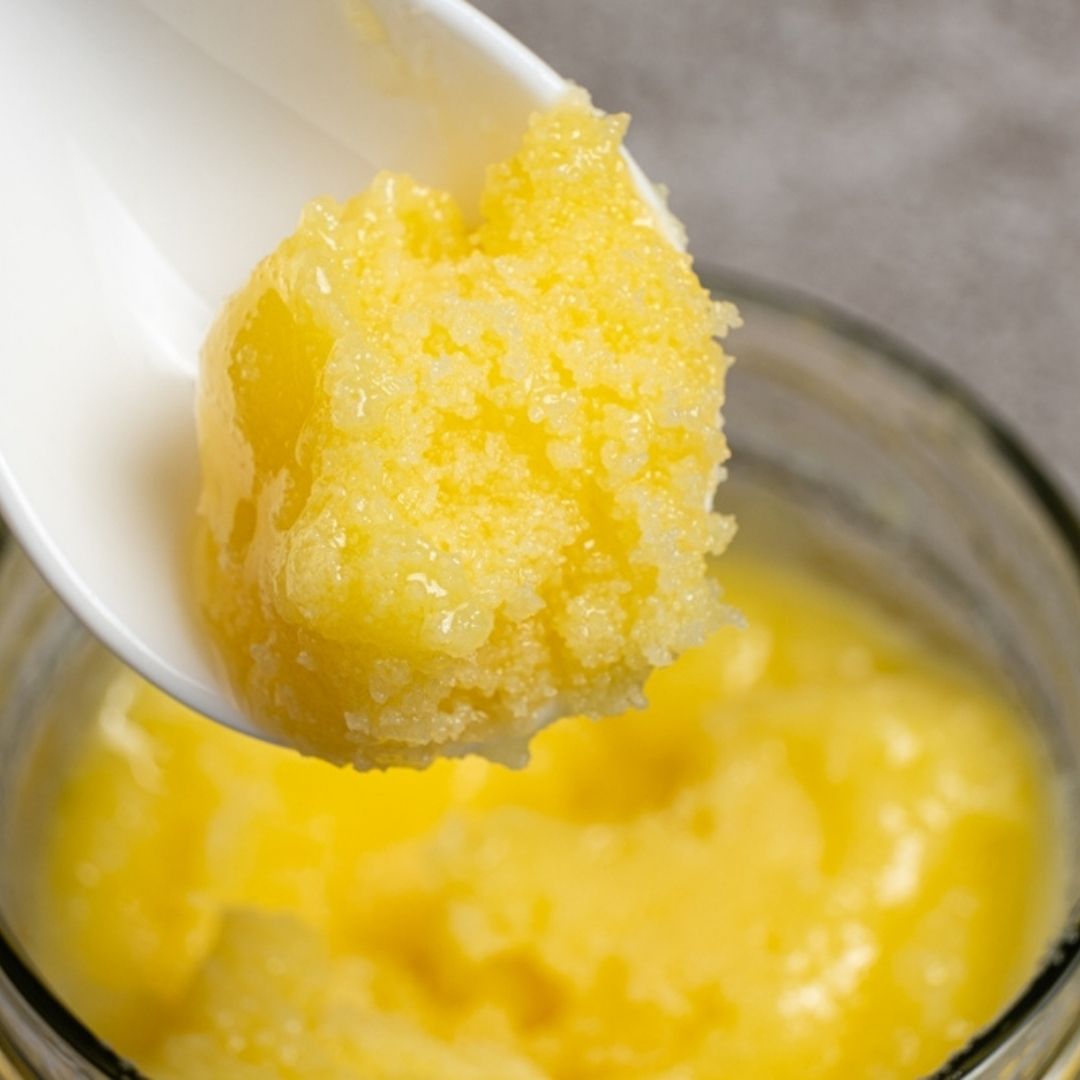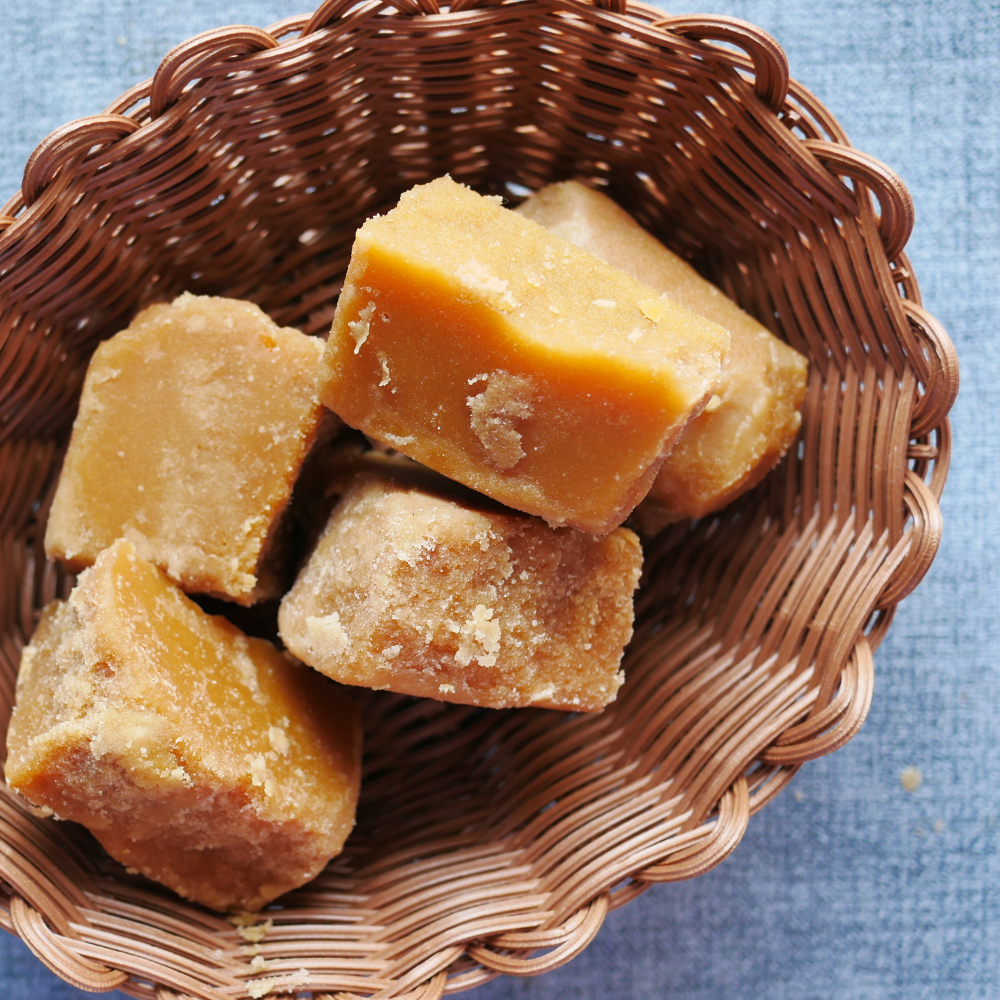A growing number of people are choosing to incorporate gluten-free options into their diets due to gluten sensitivity and celiac disease. The protein gluten, which is present in wheat, barley, and rye, can have negative effects on those who have celiac disease or gluten sensitivity. A sensitivity to gluten can cause bloating, upset stomach, skin rashes, and fatigue. A lot of individuals are using gluten-free flour, which has several health advantages, to address these problems.
Because it is specifically designed to be gluten-free, gluten-free flour is a great option for people who must limit gluten in their diets. It's created with substitute grains and flours, like sorghum flour, brown rice flour, almond flour, and oat flour. These ingredients offer a tasty and nutrient-rich substitute for regular wheat flour.
Apart from meeting particular dietary requirements, gluten-free flour can also help those who are trying to control their weight. Its gluten-free nature means that it doesn't require processed wheat items that are high in calories and might cause weight gain. Alternatively, a more wholesome and healthful choice for controlling weight is gluten-free flour.
Knowing Gluten and How It Affects Health
The protein gluten, which is present in wheat, barley, and rye, is essential to the consistency and flexibility of dough. However, ingesting gluten may negatively impact the health of the digestive system in people who have celiac disease or gluten sensitivity. It may result in gastrointestinal inflammation, which could manifest as bloating, diarrhea, and pain in the abdomen. Knowing how gluten affects health is essential to choose a diet that works for you.
What Gluten Is and Where It's Found: A Definition
A composite protein called gluten can be found in wheat, barley, and rye. When these grains are combined with water, it gives dough its elasticity and texture. Gliadins and glutenins, the two proteins that make up gluten, are what give bread and other baked foods their distinctive chewiness. In addition, it serves as a binding agent, keeping the constituents together.
Gluten can be found most commonly in wheat, which is also used to make pasta, bread, and other baked foods. Gluten can also be present in barley and rye, which are widely used in cereals, beer, and various bread varieties. It's crucial that people with celiac disease or gluten sensitivity stay away from these grains and choose gluten-free substitutes like gluten-free flour.
Gluten's Effect on Digestive Health and Well-Being
Consuming gluten can have a major effect on the digestive system and general health of people who have celiac disease or gluten sensitivity. Inflammation in the intestines caused by gluten can result in symptoms including lethargy, diarrhea, bloating, and abdominal pain. People may find it challenging to keep up a nutritious and well-balanced diet as a result.
Gluten sensitivity has been connected to gastrointestinal problems as well as other medical disorders like irritable bowel syndrome (IBS). Abdominal pain, cramping, and irregular bowel movements are some of the symptoms of a common illness called irritable bowel syndrome (IBS), which affects the large intestine. Steering clear of gluten can help reduce these symptoms and enhance digestive health in general.
Why Choose Flour Without Gluten?
As celiac disease and gluten sensitivity have increased, more people are choosing gluten-free flour as a healthier substitute for conventional wheat flour. Better vitamin absorption, a richer nutrient profile, and enhanced digestive health are just a few advantages of using gluten-free flour. It is also a good choice for people who want to control their weight or who need to avoid gluten for other health-related reasons. People can enjoy the taste and health benefits of gluten-free flour without suffering from its negative effects by making the switch.
The Increase in Celiac Disease and Gluten Sensitivity
The incidence of celiac disease and gluten sensitivity has significantly increased in recent years. An unpleasant reaction to gluten, known as gluten sensitivity, can result in symptoms such as fatigue, upset stomach, and bloating. An autoimmune condition known as celiac disease causes damage to the small intestine when gluten is consumed.
Increased knowledge of the possible health hazards linked to gluten consumption has resulted from the rise in these illnesses. Nowadays, a lot of people decide to cut out gluten from their meals in order to reduce symptoms and enhance their general health. Gluten-free flour offers people with celiac disease or gluten intolerance a safe and healthful substitute.
Advantages of Using Gluten-Free Flour for Nutrition
Making the switch to gluten-free flour has various nutritional advantages. Since gluten-free flour is frequently fortified with vital vitamins and minerals, it's a nutrient-dense option for people on a gluten-free diet. It's a good source of B vitamins, which are important for brain and energy development. Furthermore, the high fiber content of gluten-free flour helps to maintain a healthy digestive tract and stave off constipation. Depending on the ingredients used, gluten-free flour has a variable nutrient composition, but overall, it offers a well-rounded nutritional profile that can support general health and wellbeing.
How to Choose the Best Gluten-Free Flour for Your Requirements
It's crucial to take your unique dietary requirements and tastes into account when selecting gluten-free flour. There are numerous varieties of gluten-free flour available, each with special qualities and advantages. Oat flour, coconut flour, almond flour, and brown rice flour are a few essential components of gluten-free flour. These ingredients work well in a range of recipes since they have distinct flavors and textures. People can make sure they are getting the greatest flavor and nutritional benefits from their gluten-free diet by choosing the appropriate gluten-free flour.
Crucial Components of Gluten-Free Flour
It's crucial to search for essential elements in gluten-free flour that offer both a desired texture and nutritional advantages. Since brown rice flour is an adaptable ingredient that works well in many different recipes, it is a popular choice. It adds a nutty flavor to baked foods and is high in fiber. Another well-liked choice is almond flour, which is produced by finely grinding almonds. It gives baked items a moist texture and subtle flavor. Grinded oats are used to make oat flour, which is high in fiber. It gives recipes a hint of sweetness and nutty flavor. You can use any of these ingredients alone or in combination to make a delicious and distinctive gluten-free flour.
The Best Types of Gluten-Free Flour and Their Special Advantages
There are numerous types of gluten-free flour available, and each has special flavors and advantages. Among the best types of gluten-free flour are:
-
Chickpea flour: Rich in fiber and protein, this flour is made from ground chickpeas. It is frequently used in Indian cooking and has a nutty flavor.
-
Sorghum Flour: Sorghum flour is light in color and texture, derived from an ancient cereal grain. It is adaptable and suitable for many different types of recipes.
-
Amaranth flour: Packed with fiber, protein, and micronutrients, amaranth is regarded as a pseudo cereal. It can be used in savory and sweet recipes and has an earthy, nutty flavor.
A varied and wholesome gluten-free diet is made possible by the variety of flavors and textures available in these gluten-free flour options.
Principal Advantages of Using Gluten-Free Flour
There are numerous important advantages of using gluten-free flour for general health and wellbeing. Enhanced vitamin absorption, a richer nutrient profile, and better digestive health are some of these advantages. For those who need to control their weight or adhere to a gluten-free diet for other medical reasons, gluten-free flour is a good choice. People can enjoy flour's flavor and health advantages without having to deal with gluten by adding gluten-free flour to their meals.
Gastrointestinal health
Making the switch to gluten-free flour can benefit gut health. When consuming gluten, people with celiac disease or gluten sensitivity frequently have symptoms like diarrhea, upset stomachs, and bloating. Reducing gluten in the diet and using gluten-free flour can help with these symptoms and promote better digestive health. Furthermore, gluten-free flour is frequently composed of simpler-to-digest components, which makes it a good choice for people with digestive problems like irritable bowel syndrome. Gluten-free flour can improve people's general health and well-being by supporting a healthy digestive tract.
A More Comprehensive Nutrient Profile
The nutritional profile of gluten-free flour is higher than that of regular wheat flour. Iron, B vitamins, vitamin C, and other vitamins and minerals are frequently added to it. B vitamins are essential for the synthesis of energy and proper brain function, while vitamin C is an antioxidant that boosts immunity. Furthermore, fiber from gluten-free flour supports a healthy digestive tract and helps ward off constipation. People can make sure they are eating a balanced, nutrient-rich meal by adding gluten-free flour to their diets.
Enhanced Assimilation of Nutrients
For those who have celiac disease or gluten sensitivity, gluten can cause problems absorbing nutrients, which can result in nutrient deficits and other health problems. People may make sure they are getting the most out of their food and enhance their nutrient absorption by making the move to gluten-free flour. Almond flour and brown rice flour are two common ingredients used to make gluten-free flour because they are simpler to digest. Resistant starch is present in several substances, which may help absorb nutrients and support good gut flora. Gluten-free flour enhances nutritional absorption, which benefits general health and wellbeing.
Weight Management
Achieving and maintaining a healthy weight is a major issue for many people, and using gluten-free flour can help with that. Since gluten-free flour has less calories by nature, it can aid in weight loss when combined with an active lifestyle and a balanced diet.
The removal of gluten, a wheat protein that some people find uncomfortable and causes bloating, is one of the key benefits of using gluten-free flour for managing weight. Reducing the chance of these symptoms and improving digestion are achieved by removing gluten from the diet. Gluten-free flour blends frequently contain flour manufactured from substitute grains such as brown rice, oat flour, almond flour, and rice flour in addition to being gluten-free. Compared to conventional wheat flour, these substitute grains have a greater nutritious profile and supply vital vitamins, minerals, and dietary fiber. This nutrient density can aid in satiety and appetite reduction, which will help with weight management in the long run.
Gluten-free flour allows people to maintain their weight while still enjoying their favorite foods without sacrificing their health objectives. A balanced diet should consist of a range of fruits, vegetables, lean meats, and healthy fats.
Reduced Glycemic Index
Keeping blood sugar levels within normal ranges is essential for general health, particularly for those who have diabetes or want to avoid developing it. Because gluten-free flour has a lower glycemic index, it may help control blood sugar levels.
A measure of how quickly food's carbs elevate blood sugar is called the glycemic index (GI). Blood sugar rises more slowly with foods with a low GI than it does quickly with those with a high GI. Compared to ordinary wheat flour, gluten-free flours such as brown rice flour, almond flour, and oat flour usually have a lower GI.
Those who consume lower GI gluten-free flour may be able to prevent blood sugar spikes that might cause energy dips and sugar cravings. Rather, gluten-free flour promotes constant energy levels and lowers the chance of developing insulin resistance by delivering a continuous flow of glucose into the bloodstream.
Furthermore, people with diabetes or those on a low-carb diet can benefit from using gluten-free flour due to its lower GI. People can maintain their blood sugar management while still enjoying their favorite baked items by selecting flour that is free of gluten.
Conclusion
Adopting a gluten-free diet and using gluten-free flour may have several health advantages, such as higher nutrient absorption, a richer nutrient profile, better weight management, and a lower glycemic index. You may take advantage of gluten-free flour's culinary benefits by choosing the best gluten-free flour and incorporating it into your regular diet with helpful advice and imaginative ideas. Examine the health results, individual accounts, and scientifically proven advantages to help you make an educated decision that meets your dietary needs and wellness objectives.
Frequently Asked Questions
Can all conventional recipes be made with gluten-free flour?
Most classic recipes can be made with gluten-free flour, but it's important to remember that the texture and taste may change significantly. The absence of gluten in gluten-free flour might result in a thicker texture since gluten gives baked goods their structure and elasticity. However, using gluten-free flour can still provide wonderful results if you make the right adjustments and try out new recipes.
What effect does gluten-free flour have on baked goods' texture?
The protein gluten, which gives baked goods their structure and suppleness, is absent from gluten-free flour. Therefore, compared to baked items made with conventional wheat flour, those made using gluten-free flour may have a denser texture. Nonetheless, gluten-free flour can be made to have a decent texture and flavor by experimenting with different recipes and utilizing alternative binding agents.
Should one take into account any nutritional adjustments while converting to gluten-free flour?
It's critical to take the nutritional compensation into account when converting to gluten-free flour. Although gluten-free flour may have less B vitamins than regular wheat flour, conventional wheat flour is still a rich source of these nutrients. Nonetheless, extra nutrients are frequently added to gluten-free flour to make up for any possible shortfalls. Furthermore, gluten-free flour typically has more fiber, which is good for digestive health.








